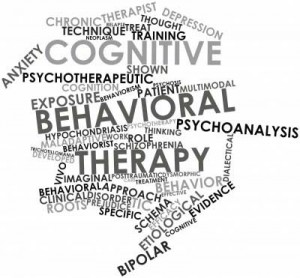What is Dialectical Behavior Therapy?

Dialectical behavior therapy helps people with BPD.
Dialectical Behavior Therapy is a therapy that includes different treatments to treat people with Borderline Personality Disorder. This disorder fundamentally implies that an individual is not capable of managing his or her emotions. They not able to answer to stressful situations and it interferes with each and every day situations.
The components that make up this therapy include behavioral therapy, cognitive therapy, and the idea of mindfulness. Dialectical Behavior Therapy has additionally been successful in treating people who have other mood problems, such as suicidal tendencies or those that cause injury to themselves. DBT could be helpful for borderline personality disorder, depression, self-injury, binge eating disorder, bipolar disorder, bulimia, and substance abuse.
Dialectical Behavior Therapy was introduced in 1991 and has been the topic of many studies. This system has been used successfully since its introduction. Frequently,Dialectical Behavior Therapy uses a combination of group skills training and psychotherapy. In Dialectical Behavior Therapy the objectives of teaching mindfulness skills are describing without judgmental statements, participation in activity with full focus and observing without judging.
Types of Drug Addiction Treated Using Dialectical Behavior Therapy
Several critical processes come together to produce a powerful and distinctive therapy experience for each patient who begins treatment. Each type of addiction treatment service shows another effect of addiction in the life of the person and gives the opportunity to create change while moving forward to mend past and create a better future. Dialectical Behavior Therapy can be used to treat drug addictions such as: crystal meth, heroin, hydrocodone, marijuana, opiate, oxycontin, prescription drugs and other drugs.
Benefits of Dialectical Behavior Therapy in treating Drug Addiction
The best way to support the individual to move forward after crystal meth habit with a lesser possibility of relapse is to undergo behavioral therapies like Cognitive Behavioral Therapy (CBT) and contingency management interventions, based on the National Institutes of Health. Although cleansing and medical care are necessary for first stabilization and in a constant effort to handle co-occurring mental health problems, psychological substance abuse treatment is the primary type of support and healing for those in recovery.
In general, the faster the patient receives therapy, the greater his or her odds of encountering a complete recovery. However, if paranoia and psychosis are an issue, they might continue for as long as a year after rehabilitation no matter how intense the therapy. Sleep issues and memory loss might be not be treatable. However, with continuous follow-up care and treatments that demand accountability for behaviors and abstinence from all substance abuse, the likelihood of a complete recovery increase drastically.